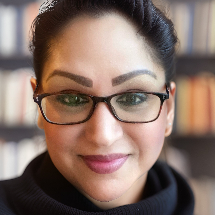Key Points
- Some say "dry drunkenness" is just another step on the path to recovery.
- Certain factors can make dry drunk syndrome more likely, like not going to treatment.
- Therapy and supportive communities can alleviate dry drunk syndrome.
A “dry drunk” is someone who’s sober but still experiencing some of the emotions and behaviors caused by alcohol use. The term also describes someone who returns to an immature mindset1 after years or decades of impairment—arguably, back to how old they were when they began drinking. Other effects include irritability and impulsiveness.
The term came about when Alcoholics Anonymous (AA) first began. AA members coined it2 as a non-negotiable stage of alcohol recovery. Later, psychiatrists and addiction specialists added their own twists to the definition, but generally agreed it’s part of recovery as a whole.
Who’s Most at Risk of Dry Drunk Syndrome?
Everyone in alcohol addiction recovery risks dry drunkenness, but it does become more likely for some specific groups.
Someone Who Never Went to Treatment
Not everyone needs professional alcohol addiction treatment, especially if their addiction isn’t severe. Or so it may feel.
Some forms of treatment, like outpatient therapy, address why/how drinking became a coping tool. Without treatment, you lose the chance to identify trauma, mental health conditions, and instill positive coping skills. Treatment can also help you process having an addiction.
Without treatment, you risk developing dry drunk syndrome.
Someone Who Didn’t Complete Treatment
Anyone that prematurely left addiction treatment likely won’t enjoy the inner healing it can provide. You may not heal the underlying issues of addiction if you don’t finish treatment, resulting in dry drunk syndrome.
Someone Who Had Poor Treatment
You may have gone to treatment but felt like you didn’t benefit from it. Maybe the facility wasn’t up to par, or you just couldn’t relate to their methods. Factors like that could keep you from fully engaging in treatment and experiencing healing.
Other Nuances of Dry Drunk Syndrome
Some symptoms of dry drunk syndrome mimic physical health issues2, like allergies and hypoglycemia. In early AA days, some members wrongly assumed more serious health conditions were simply a phase of their recovery. When those symptoms were medically addressed, they were no longer dry drunk.
So, it’s important to remember the signs and symptoms of dry drunk syndrome. That way, you can differentiate its symptoms from another health condition and get the treatment you need.
What Are The Signs of Dry Drunk Syndrome?
The signs of dry drunk syndrome2 include:
Changes in Mood
You may feel more down, hopeless, or irritated than normal. You might also feel out of control since you can’t use your old coping tool anymore. Or, your mood could turn aggressive, and you may snap at your friends and family.
Difficulty Concentrating
Feeling confused, disoriented, or distracted can make it hard to concentrate. Dry drunk syndrome can cause those feelings, affecting your work, school, and daily interpersonal life.
Isolating
Feeling low, irritable, and ashamed of your feelings could lead to isolation. Or, you may want to deal with those feelings on your own, which could cause you to spend more and more time in isolation. That could mean staying in your room, overstaying at work, or becoming emotionally isolated around others.
Engaging in Other Addictive Behaviors
You may turn to other substances1 in lieu of alcohol. These include “innocent” replacements, like caffeine, and even narcotics like cocaine. Other popular replacements include vapes and cigarettes, which contain nicotine. Excessively using nicotine or caffeine may seem better than using alcohol, but the underlying cause of addiction remains unaddressed.
Going Back to Old Bars
Despite not drinking anymore, you may feel drawn to the bars you used to go to and the social circles you were in. You may go to reconnect with old friends or another part of yourself. But doing so could tempt you into a relapse.
Habitual Lying
Hiding alcohol use and addiction usually requires lying, which can be a hard habit to break for those with dry drunk syndrome. You may find yourself lying about small or unimportant truths, creating trust issues with you and your loved ones.
Anger And Resentment
In an attempt to avoid self-blame, rather than absolving it, you may blame others for personal errors. This could present as frequent anger outbursts, constant anger, and having a short fuse. You may also resent others for causing your addiction or contributing to it. Or, you might resent those who have gotten sober and seem perfectly happy.
Exaggerated Self-Importance
You may expect praise and positive attention for getting sober. This could lead to an exaggerated sense of self-importance, as you believe you’re owed praise. Receiving praise could then fuel that belief. Treatment can help you feel proud of your sobriety without the praise of others, which could prevent this symptom of dry drunk syndrome.
Explore Alcohol Treatment Centers
How Is Dry Drunk Syndrome Treated?
To treat dry drunk syndrome, you and your care providers will likely return to your addiction’s root cause. A therapist, psychologist, or addictions counselor will use various techniques to help you identify the factors that lead to addiction and find a path forward. These techniques include:
Cognitive Behavioral Therapy (CBT)
CBT helps you identify and address the thoughts and emotions behind your behaviors. For dry drunk syndrome, you’ll go back to what may have caused your addiction and how that unresolved cause still affects your present self. You and your therapist will then begin the healing process to resolve those issues and relieve you from dry drunk syndrome.
Dialectical Behavioral Therapy (DBT)
DBT helps you accept strong emotions, navigate their effects, and learn tools for interpersonal communication. This therapy targets the emotions of dry drunk syndrome and the strong feelings that may have led to substance use in the first place. DBT usually takes place in a group setting with a classroom-like structure. You’ll learn new skills, accept your emotions, and explore ways to better yourself.
Holistic Therapies
Holistic therapies can help you navigate dry drunk syndrome by fostering your mind-body connection. Connecting deeper to yourself can open your eyes to the emotions that drove your addiction and how dry drunk syndrome continues to have those emotional effects. Holistic therapies for dry drunk syndrome include
- Mindfulness and meditation
- Horticulture therapy
- Art and music therapy
- Reiki
- Yoga
The 12 Steps
Many of the original Alcoholics Anonymous (AA) members followed the 12 Steps to alleviate dry drunk syndrome. Those same principles still apply today. As the earlier members found relief through surrender and commitment to abstinence, so can you. Many rehabs and outpatient programs use the 12 Steps in treatment. And, you can keep going to AA meetings as long as you want, even after you leave treatment. You’re always welcome there.
Find A Support Group
12-Step groups exist worldwide. To find one near you, you can use AA’s meeting finder. You can also attend a rehab with a 12-Step focus.
To see 12-Step rehabs, you can browse our list of centers to see reviews, photos, insurance information, and more.
-
Ranganatha, Shanti. “Dry Drunk Syndrome in Alcoholics.” Indian Journal of Psychological Medicine, vol. 8, no. 1, Jan. 1985, pp. 26–28. DOI.org (Crossref), https://doi.org/10.1177/0975156419850107.
-
Worden, Mark, and Gayle Rosallini. “The Dry Drunk Syndrome: A Toximolecular Interpretation.” ORTHOMOLECULAR PSYCHIATRY, vol. 9, 1980, pp. 41–47.
Return to Resource Library
Our Promise
How Is RehabPath Different?
We believe everyone deserves access to accurate, unbiased information about mental health and addiction. That’s why we have a comprehensive set of treatment providers and don't charge for inclusion. Any center that meets our criteria can list for free. We do not and have never accepted fees for referring someone to a particular center. Providers who advertise with us must be verified by our Research Team and we clearly mark their status as advertisers.




















